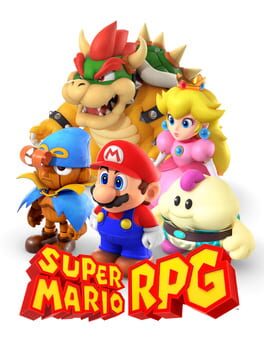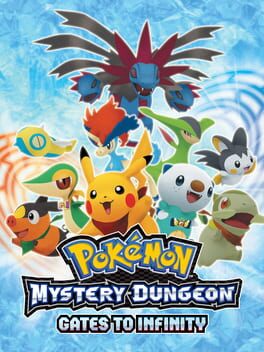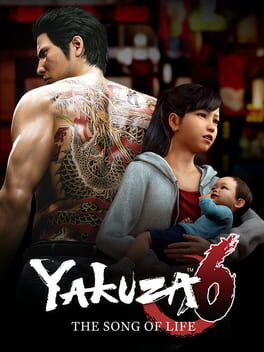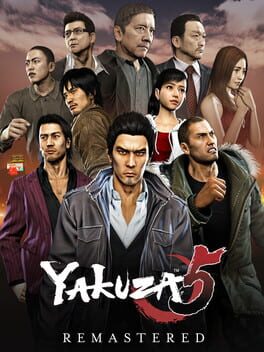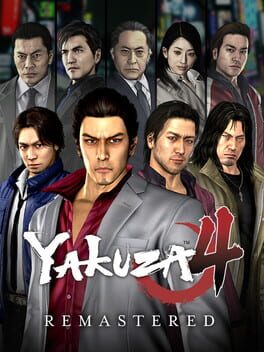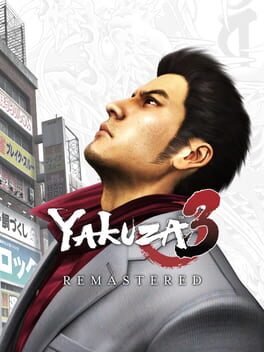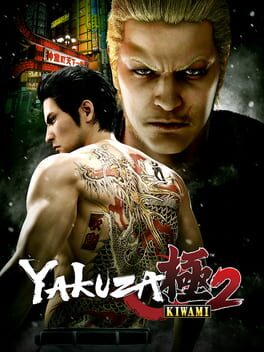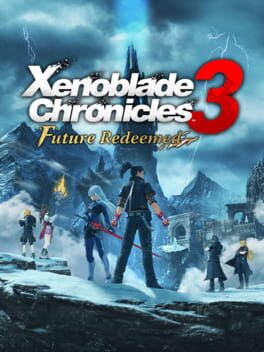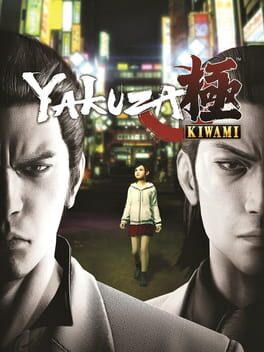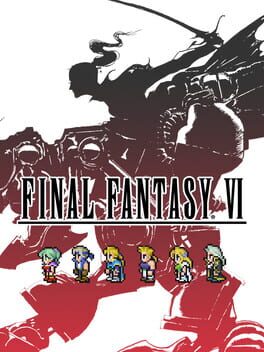Innes
BACKER
2020
(Note: I never played Cyberpunk prior to the 2.0 overhaul. My review also takes Phantom Liberty into account on top of the main game.)
Despite remaining an unstable experience three years after release, Cyberpunk 2077 is a deep, intricate, and incredibly endearing RPG worth going out of your way for.
+ Night City is beautifully fucked up and I couldn't get enough of it. I completed almost every side quest in the game because I never tired of seeing, and learning more about, its dystopian setting.
+ Just like The Witcher series, Cyberpunk's writing is nothing short of stellar. Its characters are super engaging with Johnny Silverhand, Judy Alvarez, Songbird, and even V themself being particular highlights.
+ The sheer variety of combat build options on offer is astounding. There are so many ways to deal with encounters that I almost want to replay it again with an entirely different build to get a whole new gameplay experience,
- Boss fights are sadly pretty lacklustre with all of them coming down to having to strafe around a large room while slowly whittling down their health. A design approach similar to Deus Ex: Human Revolution's boss fights would have been better, I feel. Luckily, you can skip the majority of them with the right dialogue choices.
- Cyberpunk remains fairly unstable, though it's nowhere near as bad as its launch state. The majority of bugs are similar to those seen in the Fallout games: Nothing game-breaking but can occasionally cause irritation.
Despite remaining an unstable experience three years after release, Cyberpunk 2077 is a deep, intricate, and incredibly endearing RPG worth going out of your way for.
+ Night City is beautifully fucked up and I couldn't get enough of it. I completed almost every side quest in the game because I never tired of seeing, and learning more about, its dystopian setting.
+ Just like The Witcher series, Cyberpunk's writing is nothing short of stellar. Its characters are super engaging with Johnny Silverhand, Judy Alvarez, Songbird, and even V themself being particular highlights.
+ The sheer variety of combat build options on offer is astounding. There are so many ways to deal with encounters that I almost want to replay it again with an entirely different build to get a whole new gameplay experience,
- Boss fights are sadly pretty lacklustre with all of them coming down to having to strafe around a large room while slowly whittling down their health. A design approach similar to Deus Ex: Human Revolution's boss fights would have been better, I feel. Luckily, you can skip the majority of them with the right dialogue choices.
- Cyberpunk remains fairly unstable, though it's nowhere near as bad as its launch state. The majority of bugs are similar to those seen in the Fallout games: Nothing game-breaking but can occasionally cause irritation.
2023
A great remake of a solid, if somewhat basic, JRPG that's propped up by its hilarious writing and animation.
+ This is genuinely one of the funniest video games I've ever played. The charming writing, combined with its exaggerated slapstick animations, had me legitimately laughing out loud countless times.
+ The art style remains true to the SNES original whilst being both graphically impressive for the Switch and gorgeous in its own right.
+ THAT secret boss. I won't say anything more but definitely worth seeking out, particularly if you're a Final Fantasy fan.
- Even with the quality of life additions, combat feels dated and a little underdeveloped. Offensive abilities become obsolete in the last quarter of the game as your basic attacks are almost always stronger, which leads to combat feeling dull and slightly repetitive.
- Framerate dips occasionally pop up and are fairly noticeable when they do. Bowser's Keep is most egregious for this and, thankfully, the issue almost entirely cropped up in the overworld - only affecting two fights in the entire game.
+ This is genuinely one of the funniest video games I've ever played. The charming writing, combined with its exaggerated slapstick animations, had me legitimately laughing out loud countless times.
+ The art style remains true to the SNES original whilst being both graphically impressive for the Switch and gorgeous in its own right.
+ THAT secret boss. I won't say anything more but definitely worth seeking out, particularly if you're a Final Fantasy fan.
- Even with the quality of life additions, combat feels dated and a little underdeveloped. Offensive abilities become obsolete in the last quarter of the game as your basic attacks are almost always stronger, which leads to combat feeling dull and slightly repetitive.
- Framerate dips occasionally pop up and are fairly noticeable when they do. Bowser's Keep is most egregious for this and, thankfully, the issue almost entirely cropped up in the overworld - only affecting two fights in the entire game.
2020
A solid enough showcase for what the PlayStation 5 can do on top of being a decently fun platformer.
+ Gameplay is fairly simple but is kept varied with different mechanics being introduced for every level.
+ The easter eggs and homages paid to PlayStation's past made me feel old, but in a good way.
- It does overstay its welcome towards the end. As much as there's plenty of mechanical variety, the core gameplay loop stays the same and is very simple for a 2-hour experience.
+ Gameplay is fairly simple but is kept varied with different mechanics being introduced for every level.
+ The easter eggs and homages paid to PlayStation's past made me feel old, but in a good way.
- It does overstay its welcome towards the end. As much as there's plenty of mechanical variety, the core gameplay loop stays the same and is very simple for a 2-hour experience.
Gates To Infinity is just... fine. A passable Mystery Dungeon experience, though it's shallow and disappointing as a follow-up to the excellent Explorers of Time/Darkness/Sky.
+ The writing is just as charming as Rescue Team and Explorers with fairly memorable characters. Highlights include Victini, Cofagrigus, Hydregion, and Quagsire.
+ The ending is handled very well with a presentation that's arguably on par with Explorers' heart-wrenching ending.
- Gameplay is generally dull and repetitive as many of the series' most interesting mechanics have been over-simplified or removed entirely.
- Building up Paradise is a great concept that just wasn't executed very well. The slow trickle of materials through jobs, on top of the new one-job-per-day restriction, makes job completion laborious and the buildings you create from those materials are almost entirely useless.
- The main story is ridiculously easy, to the point that I one-shot the final boss. This could be down to me playing as Axew though as it seems exceptionally powerful versus other starters thanks to its early access to Dual Chop.
- The game's text speed is Diamond/Pearl-levels of obnoxiously slow, making story progress a complete slog.
+ The writing is just as charming as Rescue Team and Explorers with fairly memorable characters. Highlights include Victini, Cofagrigus, Hydregion, and Quagsire.
+ The ending is handled very well with a presentation that's arguably on par with Explorers' heart-wrenching ending.
- Gameplay is generally dull and repetitive as many of the series' most interesting mechanics have been over-simplified or removed entirely.
- Building up Paradise is a great concept that just wasn't executed very well. The slow trickle of materials through jobs, on top of the new one-job-per-day restriction, makes job completion laborious and the buildings you create from those materials are almost entirely useless.
- The main story is ridiculously easy, to the point that I one-shot the final boss. This could be down to me playing as Axew though as it seems exceptionally powerful versus other starters thanks to its early access to Dual Chop.
- The game's text speed is Diamond/Pearl-levels of obnoxiously slow, making story progress a complete slog.
This review contains spoilers
Like A Dragon takes the series in a refreshing new direction, though there are definitely some growing pains with the transition.
+ Ichiban is an endearing breath of fresh air versus Kiryu. Whilst I've always enjoyed Kiryu as a character, getting to see and interact with the world of Yakuza/Like A Dragon through a more quirky character was much more fun.
+ The new turn-based system takes heavy inspiration from both Dragon Quest & SMT/Persona and it shows. It does become a little monotonous by the end and can be buggy at times but it's laid a very promising foundation for the series' future.
+ Just like Y5 and Y6, Like A Dragon's substory quality is fantastic and is only enhanced with Ichiban as the protagonist.
- The writing and characters don't feel as strong as previous entries, particularly in comparison to Y5 and Y6. The antagonists are some of the best in the series but the majority of the protagonists are, unfortunately, fairly dull.
- I wasn't a huge fan of the story's pacing. It didn't feel like it was getting anywhere until around Chapter 11 where it suddenly goes at a breakneck pace and plot details get dumped on you left and right - very Xenoblade Chronicles-esque, mainly to its detriment.
+ Ichiban is an endearing breath of fresh air versus Kiryu. Whilst I've always enjoyed Kiryu as a character, getting to see and interact with the world of Yakuza/Like A Dragon through a more quirky character was much more fun.
+ The new turn-based system takes heavy inspiration from both Dragon Quest & SMT/Persona and it shows. It does become a little monotonous by the end and can be buggy at times but it's laid a very promising foundation for the series' future.
+ Just like Y5 and Y6, Like A Dragon's substory quality is fantastic and is only enhanced with Ichiban as the protagonist.
- The writing and characters don't feel as strong as previous entries, particularly in comparison to Y5 and Y6. The antagonists are some of the best in the series but the majority of the protagonists are, unfortunately, fairly dull.
- I wasn't a huge fan of the story's pacing. It didn't feel like it was getting anywhere until around Chapter 11 where it suddenly goes at a breakneck pace and plot details get dumped on you left and right - very Xenoblade Chronicles-esque, mainly to its detriment.
This review contains spoilers
An emotional end to the Kiryu Kazuma arc of Yakuza. Whilst 6 isn't as refined or in-depth on the gameplay side of things as previous games, it makes up for it with a fantastic story and cast.
+ After 5 games, we've finally found another Yakuza game where the characters are on par with 0. Despite most of the main cast being introduced just for this game, they felt more fleshed out and engaging than most characters of the previous games - even the antagonists!
+ The last few hours of the story are, bar none, the best Yakuza experience I've had yet. A real mixture of triumph and heartbreak, especially the post-credits scene which legitimately brought me to tears.
+ I was ready to hate Clan Creator after not enjoying it in Kiwami 2 but I was pleasantly surprised here: Being on the attack was WAY more fun. Plus, getting to fight a bunch of NJPW wrestlers - including Okada WITH his entrance theme as the battle music - made my wrestling fan heart very happy.
+ RGG seems to finally be hitting a consistent stride with substories. I'm glad they're finally taking advantage of modern tech to put mega-boomer Kiryu in some bizarre situations. Plus, the substory jingle is FINALLY back!
- Combat doesn't feel as refined as it did in Kiwami 2. Kiryu feels a little floaty (not quite Yakuza 3 levels but not far off), his moveset is fairly limited versus previous games and it really feels like they were still trying to find their feet with Dragon Engine combat.
- It's weirdly shorter than the other games in the series, which isn't necessarily a bad thing. It just felt like a very odd contrast to me coming off Yakuza 5 being one of the longest to 6 being, by far, the shortest.
- The new cast is excellent, but it did feel a little odd that most of the old guard are almost entirely missing from 6. Majima especially felt like an odd omission, appearing at the start of the game before being arrested off-screen and not appearing again until the post-credit scenes.
+ After 5 games, we've finally found another Yakuza game where the characters are on par with 0. Despite most of the main cast being introduced just for this game, they felt more fleshed out and engaging than most characters of the previous games - even the antagonists!
+ The last few hours of the story are, bar none, the best Yakuza experience I've had yet. A real mixture of triumph and heartbreak, especially the post-credits scene which legitimately brought me to tears.
+ I was ready to hate Clan Creator after not enjoying it in Kiwami 2 but I was pleasantly surprised here: Being on the attack was WAY more fun. Plus, getting to fight a bunch of NJPW wrestlers - including Okada WITH his entrance theme as the battle music - made my wrestling fan heart very happy.
+ RGG seems to finally be hitting a consistent stride with substories. I'm glad they're finally taking advantage of modern tech to put mega-boomer Kiryu in some bizarre situations. Plus, the substory jingle is FINALLY back!
- Combat doesn't feel as refined as it did in Kiwami 2. Kiryu feels a little floaty (not quite Yakuza 3 levels but not far off), his moveset is fairly limited versus previous games and it really feels like they were still trying to find their feet with Dragon Engine combat.
- It's weirdly shorter than the other games in the series, which isn't necessarily a bad thing. It just felt like a very odd contrast to me coming off Yakuza 5 being one of the longest to 6 being, by far, the shortest.
- The new cast is excellent, but it did feel a little odd that most of the old guard are almost entirely missing from 6. Majima especially felt like an odd omission, appearing at the start of the game before being arrested off-screen and not appearing again until the post-credit scenes.
2019
This review contains spoilers
Yakuza 5 takes a lot of the issues with the Yakuza 4 formula and radically shakes things up to make one of the best games in the series yet.
+ The Side Stories are, almost without exception, fantastic. Kiryu's taxi driving and racing was by far my favorite but there's great variety across all the characters gameplay-wise. My only criticism is Akiyama not getting one and instead mixed in with Haruka's.
+ Haruka's Idol Simulator(TM) is one of the most bizarre but fun segments I've played in this series. I honestly would play an entire spin-off game of this if it was properly fleshed out.
+ The story handles the multiple protagonists angle much better than 4, particularly in the finale. Rather than ham-fisting all the characters together and having the final boss be a boss rush, 5 takes more time to build up the connection between the protagonists and antagonists.
- It's SO long. This game takes over double the amount of time to beat than the majority of the franchise's games, coming in just a few hours short of Yakuza 0's completion time. The difference here is 0 is a lot better paced.
- Combat gameplay is very similar to 4, to the point where it doesn't really feel like there's an evolution between the two titles at all other than aesthetic changes.
- I really didn't like Shinada. Sorry. Whereas Tanimura felt like a key component of the cast in 4, Shinada felt to me like he could squeezed in at the last second and could have really been replaced by anyone else. I also wasn't huge on his character itself and felt he was a bit of an airhead without many endearing traits.
+ The Side Stories are, almost without exception, fantastic. Kiryu's taxi driving and racing was by far my favorite but there's great variety across all the characters gameplay-wise. My only criticism is Akiyama not getting one and instead mixed in with Haruka's.
+ Haruka's Idol Simulator(TM) is one of the most bizarre but fun segments I've played in this series. I honestly would play an entire spin-off game of this if it was properly fleshed out.
+ The story handles the multiple protagonists angle much better than 4, particularly in the finale. Rather than ham-fisting all the characters together and having the final boss be a boss rush, 5 takes more time to build up the connection between the protagonists and antagonists.
- It's SO long. This game takes over double the amount of time to beat than the majority of the franchise's games, coming in just a few hours short of Yakuza 0's completion time. The difference here is 0 is a lot better paced.
- Combat gameplay is very similar to 4, to the point where it doesn't really feel like there's an evolution between the two titles at all other than aesthetic changes.
- I really didn't like Shinada. Sorry. Whereas Tanimura felt like a key component of the cast in 4, Shinada felt to me like he could squeezed in at the last second and could have really been replaced by anyone else. I also wasn't huge on his character itself and felt he was a bit of an airhead without many endearing traits.
2019
This review contains spoilers
A much-needed return to form after the bumpy ride that was Yakuza 3, on top of also feeling like the first Yakuza title to really try and switch up the formula.
+ The four protagonists are a great addition and keep both the combat and story fresh throughout the playthrough. All four have very different playstyles and are opposing characters in of themselves, bringing a breath of fresh air after 3-4 games of just Kiryu and occasionally Majima.
+ The story is the strongest the series has been since Yakuza 0 - thanks to its intriguing villains and backstory on Majima's past. It takes a while before it 'clicks' but once it does, the pieces of the puzzle all coming together isn't too far from the satisfying heights of 0.
+ All the combat issues from 3 are GONE! No frustrating enemies who block constantly, attack damage and speed is much improved and you always feel in control of what your character is doing - something 3 certainly struggled with.
- The ending sequence was a little disappointing. As opposed to the usual long climb to the final boss sequence seen in every other Yakuza title, 4 features a boss rush with all four protagonists followed by an irritating final boss thanks to their unending wave of goons and constant gunfire.
- The substories and side content weren't as memorable in 4 as the rest of the series. There are some highlights substory-wise but the quality doesn't feel as consistent because they're split across the four protagonists. The majority of the side content, meanwhile, felt like a repetitive grind of minute tasks to drip-feed you their stories.
+ The four protagonists are a great addition and keep both the combat and story fresh throughout the playthrough. All four have very different playstyles and are opposing characters in of themselves, bringing a breath of fresh air after 3-4 games of just Kiryu and occasionally Majima.
+ The story is the strongest the series has been since Yakuza 0 - thanks to its intriguing villains and backstory on Majima's past. It takes a while before it 'clicks' but once it does, the pieces of the puzzle all coming together isn't too far from the satisfying heights of 0.
+ All the combat issues from 3 are GONE! No frustrating enemies who block constantly, attack damage and speed is much improved and you always feel in control of what your character is doing - something 3 certainly struggled with.
- The ending sequence was a little disappointing. As opposed to the usual long climb to the final boss sequence seen in every other Yakuza title, 4 features a boss rush with all four protagonists followed by an irritating final boss thanks to their unending wave of goons and constant gunfire.
- The substories and side content weren't as memorable in 4 as the rest of the series. There are some highlights substory-wise but the quality doesn't feel as consistent because they're split across the four protagonists. The majority of the side content, meanwhile, felt like a repetitive grind of minute tasks to drip-feed you their stories.
2018
Ohhh boy, Yakuza 3.... I see why it's regarded as the red-headed stepchild of the Yakuza series now. It's a shame because at its core it's not a bad game, it just has a lot actively going against it.
+ I was super surprised by the substory quality as a whole. There's some misses, as to be expected, but when Yakuza 3 kicks into gear, its substories are some of the best in the series so far. In particular, the ones focusing on Cafe Alps, Rikiya and a movie shoot are all excellent.
+ The new 'Relevations' system allows for some great Yakuza silliness whilst also being a fun, non-grindy system to learn new moves. The foundation of Kiryu posting to a blog has some great potential as the series moves into the social media era.
- The combat feels dated and is a noticeably jarring downgrade from the three chronological games prior. Kiryu feels sluggish to control, enemies block at a frustratingly common frequency and overall, it just isn't fun. What makes it worse is having to play this right after K2, which uses the series' most up-to-date beat-em-up-style combat system.
- The story is largely utter nonsense with pacing all over the place. It starts off well with Kiryu in Okinawa managing his orphanage but then, it just. Keeps on. Going. The story slows again when you get to Kamurocho before dumping half the plot in one giant cutscene in a chapter literally called 'The Plot'. Thankfully, the final section is actually pretty great so at least RGG learnt their lesson from Yakuza 2.
+ I was super surprised by the substory quality as a whole. There's some misses, as to be expected, but when Yakuza 3 kicks into gear, its substories are some of the best in the series so far. In particular, the ones focusing on Cafe Alps, Rikiya and a movie shoot are all excellent.
+ The new 'Relevations' system allows for some great Yakuza silliness whilst also being a fun, non-grindy system to learn new moves. The foundation of Kiryu posting to a blog has some great potential as the series moves into the social media era.
- The combat feels dated and is a noticeably jarring downgrade from the three chronological games prior. Kiryu feels sluggish to control, enemies block at a frustratingly common frequency and overall, it just isn't fun. What makes it worse is having to play this right after K2, which uses the series' most up-to-date beat-em-up-style combat system.
- The story is largely utter nonsense with pacing all over the place. It starts off well with Kiryu in Okinawa managing his orphanage but then, it just. Keeps on. Going. The story slows again when you get to Kamurocho before dumping half the plot in one giant cutscene in a chapter literally called 'The Plot'. Thankfully, the final section is actually pretty great so at least RGG learnt their lesson from Yakuza 2.
2017
A huge improvement from Kiwami 1, especially in terms of gameplay, but its story ultimately lets it down - keeping it from reaching the heights of Yakuza 0.
+ I am IN LOVE with the gameplay changes introduced with the Dragon Engine. It definitely isn't for everyone, as the system of 0 and Kiwami felt much more precise and skill-rewarding, but being able to ragdoll enemies into space has been the most fun I've had in a Yakuza game yet - even at the cost of the combat variety seen in 0 and Kiwami.
+ The substories are perhaps the biggest improvement of all. Tons of variety and wacky sidequests that were mostly on par with Yakuza 0.
+ The cabaret club is back! It's almost identical to how it worked in 0 which is a bit of a shame but the story and characters, especially if you've played 0, more than make up for it.
- The first half of the story is a huge improvement versus Kiwami which makes it all the worse that the second half falls off a cliff. Without going into spoilers, I'll just say the ending is mind-boggling and not in a good way.
- Majima Construction: I'm so sad that I hated this game mode and had to quit midway through the third mission. I found the gameplay really stressful and unenjoyable having to constantly micromanage my units. It's a real shame because the concept of fighting Masahiro Chono and Keiji Mutoh in a Yakuza game sounds INCREDIBLE on paper.
+ I am IN LOVE with the gameplay changes introduced with the Dragon Engine. It definitely isn't for everyone, as the system of 0 and Kiwami felt much more precise and skill-rewarding, but being able to ragdoll enemies into space has been the most fun I've had in a Yakuza game yet - even at the cost of the combat variety seen in 0 and Kiwami.
+ The substories are perhaps the biggest improvement of all. Tons of variety and wacky sidequests that were mostly on par with Yakuza 0.
+ The cabaret club is back! It's almost identical to how it worked in 0 which is a bit of a shame but the story and characters, especially if you've played 0, more than make up for it.
- The first half of the story is a huge improvement versus Kiwami which makes it all the worse that the second half falls off a cliff. Without going into spoilers, I'll just say the ending is mind-boggling and not in a good way.
- Majima Construction: I'm so sad that I hated this game mode and had to quit midway through the third mission. I found the gameplay really stressful and unenjoyable having to constantly micromanage my units. It's a real shame because the concept of fighting Masahiro Chono and Keiji Mutoh in a Yakuza game sounds INCREDIBLE on paper.
Easily the best Xenoblade DLC expansion yet, building upon the foundations of Future Connected & Torna: The Golden Country to create a fun and fulfilling finale to the Klaus arc. 10/10, would Double Spinning Edge again.
+ Combat is somewhat simpler than the base game but ridiculously fun. Rex in particular tears through enemies by the end, thanks to his insanely high crit rate and Double Spinning Edge becoming a near-infinite use art.
+ If you felt the base game shied away from referencing Xenoblade 1 & 2 a little too much, Future Redeemed has you covered. That area & its music may have made me lose my shit just a little bit - if you know, you know.
+ The new Affinity Goals system is excellent and something I desperately hope they'll bring to future Xenoblade titles. Whilst exploring Xenoblade's worlds is fun, getting a tangible power reward for doing it made checking out every part of this DLC expansion more addicting than any other game in the series.
- The class system from the base game is sadly missing, meaning your party is always stuck with their set arts and skills. If you're someone who liked the variety of the base game's combat, it is somewhat neutered here.
+ Combat is somewhat simpler than the base game but ridiculously fun. Rex in particular tears through enemies by the end, thanks to his insanely high crit rate and Double Spinning Edge becoming a near-infinite use art.
+ If you felt the base game shied away from referencing Xenoblade 1 & 2 a little too much, Future Redeemed has you covered. That area & its music may have made me lose my shit just a little bit - if you know, you know.
+ The new Affinity Goals system is excellent and something I desperately hope they'll bring to future Xenoblade titles. Whilst exploring Xenoblade's worlds is fun, getting a tangible power reward for doing it made checking out every part of this DLC expansion more addicting than any other game in the series.
- The class system from the base game is sadly missing, meaning your party is always stuck with their set arts and skills. If you're someone who liked the variety of the base game's combat, it is somewhat neutered here.
Massive improvement over Xenoblade 2 but doesn't quite reach the lofty heights of Xenoblade 1.
Positives: The main cast are easily the most well-rounded of the entire series, the overall game direction is far better focused than Xenoblade 2 and the highs of this game far exceed anything from XC1 or 2. The end of Chapter 5 in particular is heart-wrenchingly brilliant and one of the best story moments I've ever experienced in a JRPG.
Negatives: Combat takes a long time to hit its stride, only unlocking to its full potential around halfway through the game. The villains are unfortunately very weak and underdeveloped aside from the secondary antagonist, making for a very noticeable contrast with the excellent protagonist cast. The overall story is good but feels rushed in the last third, even for Xenoblade standards.
Positives: The main cast are easily the most well-rounded of the entire series, the overall game direction is far better focused than Xenoblade 2 and the highs of this game far exceed anything from XC1 or 2. The end of Chapter 5 in particular is heart-wrenchingly brilliant and one of the best story moments I've ever experienced in a JRPG.
Negatives: Combat takes a long time to hit its stride, only unlocking to its full potential around halfway through the game. The villains are unfortunately very weak and underdeveloped aside from the secondary antagonist, making for a very noticeable contrast with the excellent protagonist cast. The overall story is good but feels rushed in the last third, even for Xenoblade standards.
2016
2019
2022

